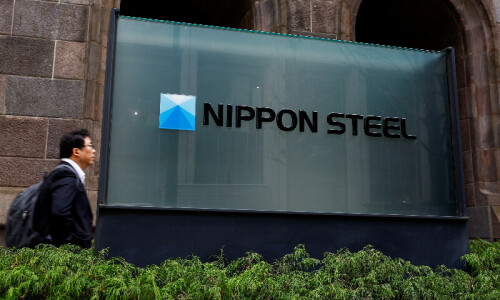BEIJING: China needs to “reinvent itself” with economic policies to speed resolution of its property market crisis and boost domestic consumption and productivity, the International Monetary Fund’s Managing Director Kristalina Georgieva said on Sunday.
“China faces a fork in the road rely on the policies that have worked in the past, or reinvent itself for a new era of high-quality growth,” Georgieva said in remarks to a meeting of senior Chinese officials and executives from global companies.
A day ago, Commerce Minister Wang Wentao also said China was committed to opening up its economy and offered growth opportunities for multinationals.
Officials who spoke at the opening of the China Development Forum expressed confidence China would hit its economic targets, including growth of about 5pc this year, and pledged further support for companies in strategically important sectors, an area Chinese President Xi Jinping has dubbed “new productive forces”.
But those commitments stopped short of the more sweeping changes urged by the IMF. Georgieva said an analysis by the IMF showed a more consumer-centered policy mix could add $3.5 trillion to China’s economy over the next 15 years.
If achieved, that boost would be equivalent to adding output equivalent to more twice the size of South Korea’s economy.
To do that China would need to take “decisive” steps to complete unfinished housing stranded by bankrupt developers and to reduce risks from local government debt, the IMF chief said.
“A key feature of high quality growth will need to be higher reliance on domestic consumption,” Georgieva, a Bulgarian economist, said. “Doing so depends on boosting the spending power of individuals and families.”
Other economists have also urged a new growth model for China. But the IMF remarks were significant in coming at the outset of a two-day meeting where Beijing is looking to push the message China is open for business.
Foreign investment flows into China shrank nearly 20pc in the first two months of the year, data released on Friday showed, and officials have been stepping up efforts to attract investors at a time when many companies have been looking to “de-risk” supply chains and operations away from China.
In 2023, foreign direct investment into China contracted by 8%, reflecting a shaky economic recovery and tensions with the United States and its allies on a range of issues.
On Sunday, Li said China’s previously announced $140-billion plan to issue ultra-long bonds would create a fund to spur investment and stabilise growth.
Other officials highlighted Xi’s commitment to drive investment in “new productive forces,” industries that officials have said includes networked electric vehicles, spaceflight and cutting-edge drug development.
Published in Dawn, March 25th, 2024















































Dear visitor, the comments section is undergoing an overhaul and will return soon.